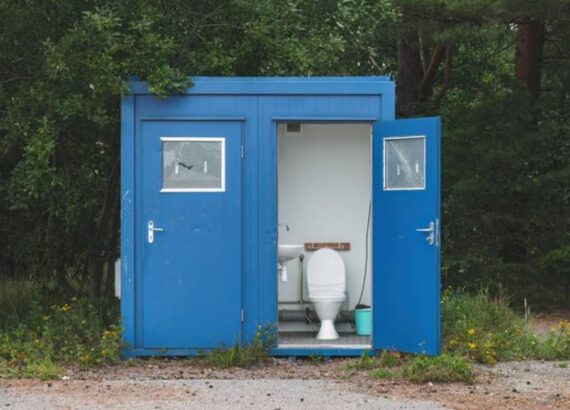Nursing License Defense: Professional License Defense

If you are a licensed nurse, your professional license is your livelihood. However, there may be situations where your license is at risk. Whether it’s a complaint filed against you, a mistake you made on the job, or other legal issues, it’s important to be prepared and know how to protect your nursing License Defense.
What is Nursing License Defense?
A nursing license defense protects your professional nursing license if disciplinary actions are taken against it. This could include complaints against you, investigations by the state board of nursing, or legal proceedings related to your nursing practice.
The goal of nursing license defense is to ensure that your nursing license remains valid and that you can continue to practice as a licensed nurse without interruption. It involves working with an attorney who specializes in nursing license defense to build a strong case in your favor and represent you during any legal proceedings.
Why Do You Need a Nursing License Defense?
Your nursing license is crucial to your professional success as a licensed nurse. It allows you to work in the nursing field and earn a living, and losing it can have serious consequences for your career and financial stability.
A nursing license defense is necessary because even a small mistake or complaint can result in disciplinary action against your license. This could include suspension or revocation of your license, fines, or other penalties.
By working with an attorney who specializes in nursing license defense, you can protect your license and avoid these consequences.
Common Reasons for Nursing License Disciplinary Actions
There are many reasons why a nursing license may be subject to disciplinary action. Some of the multiple common causes include:
- Negligence or incompetence in the nursing practice
- Substance abuse or addiction
- Criminal convictions, such as drug charges or DUIs
- Boundary violations, such as engaging in inappropriate relationships with patients
- Fraud or dishonesty in billing or documentation
- Violations of patient privacy or confidentiality
- Breaches of nursing practice standards or ethics
Steps to Take to Avoid Nursing License Disciplinary Actions
While there is no guaranteed way to avoid nursing license disciplinary actions, there are steps you can take to minimize your risk. These include:
- Staying up to date on nursing practice standards and ethics
- Practicing within the scope of your license and avoiding activities that may be considered outside of your expertise
- Maintaining appropriate boundaries with patients and avoiding relationships that may be perceived as inappropriate
- Documenting all patient care and following proper billing procedures
- Avoiding substance abuse or addiction and seeking help if needed
- Avoiding criminal activity and maintaining a clean criminal record
- Seeking legal counsel if you are facing disciplinary actions or complaints filed against your license
Consequences of Losing Your Nursing License
The consequences of losing your nursing license can be severe. Without a valid nursing license, you cannot Without a valid nursing license, you cannot legally work as a nurse, and your career in the nursing field may be permanently damaged. In addition, losing your nursing license can affect your ability to obtain employment in other fields that require professional licenses or certifications.
Losing your nursing license may also result in criminal charges, fines, and other legal penalties, depending on the circumstances. It can also affect your personal life and relationships, as well as your mental health and well-being.
How to Go About Nursing License Defense
If you are facing disciplinary actions or complaints against your nursing license, seeking legal counsel from an attorney specializing in nursing license defense is important. They can help you understand your options and develop a strategy to protect your license.
The nursing license defense process typically involves:
- Gathering evidence and information related to the complaint or disciplinary action
- Developing a defense strategy and responding to the complaint or action
- Negotiating with the state board of nursing or other relevant parties
- Representing you in any legal proceedings or hearings related to your license
When to Seek Legal Help for Nursing License Defense
It’s important to seek legal help immediately if you face disciplinary actions or complaints against your nursing license. The earlier you seek help, the better your chance of protecting your license and minimizing negative consequences.
Some signs that you may need a nursing license defense include:
- Receiving a notice of investigation from the state board of nursing
- Being contacted by a patient or their family regarding a complaint or issue with your nursing practice
- Receiving a notice of charges or hearing related to your nursing license
- Being contacted by law enforcement regarding criminal charges related to your nursing practice

What to Expect During the Nursing License Defense Process
The nursing license defense process can vary depending on the circumstances of your case. Regardless, there are some available steps you can anticipate:
- Initial consultation with an attorney to discuss your case and options
- Gathering evidence and information related to the complaint or disciplinary action
- Responding to the complaint or action and developing a defense strategy
- Negotiating with the state board of nursing or other relevant parties
- Representing you in any legal proceedings or hearings related to your license
- Appealing any unfavorable decisions or penalties
How Long Does Nursing License Defense Take?
The time it takes to resolve a nursing license defense case can vary depending on the case’s complexity, the state board of nursing’s process, and other factors. Fixing some issues may take a few months, while others may take several years.
If you are a nurse facing a potential licensing issue, seeking legal counsel from a nurse’s attorney as soon as possible is important. A nurse attorney can help protect your professional license and your career.
However, working with an attorney who can help you navigate the process and keep you informed of any updates or changes is important.
Conclusion
Protecting your nursing license is essential for maintaining your nursing career and avoiding legal consequences. If you are facing disciplinary actions or complaints against your nursing license, seeking legal counsel from an attorney specializing in nursing license defense is important. They can help you navigate the process, develop a defense strategy, and represent you in any legal proceedings or hearings related to your license. Taking action early and working with an experienced attorney can protect your nursing license and minimize negative consequences.









